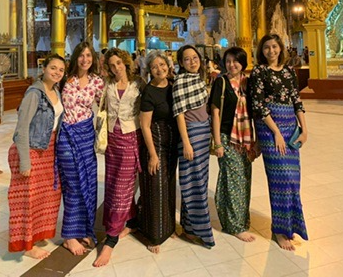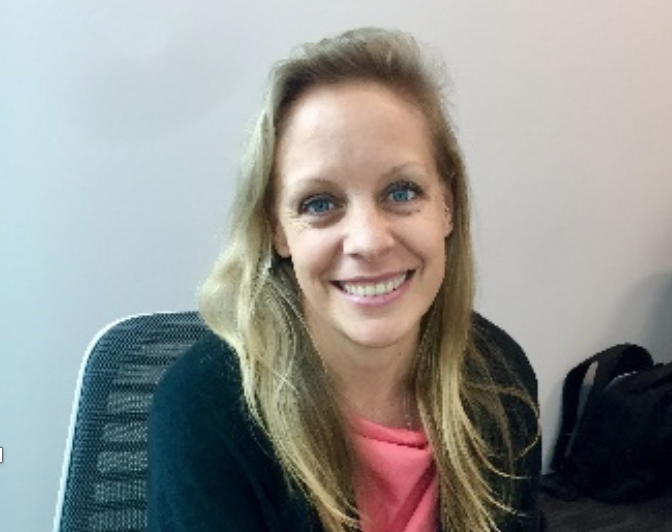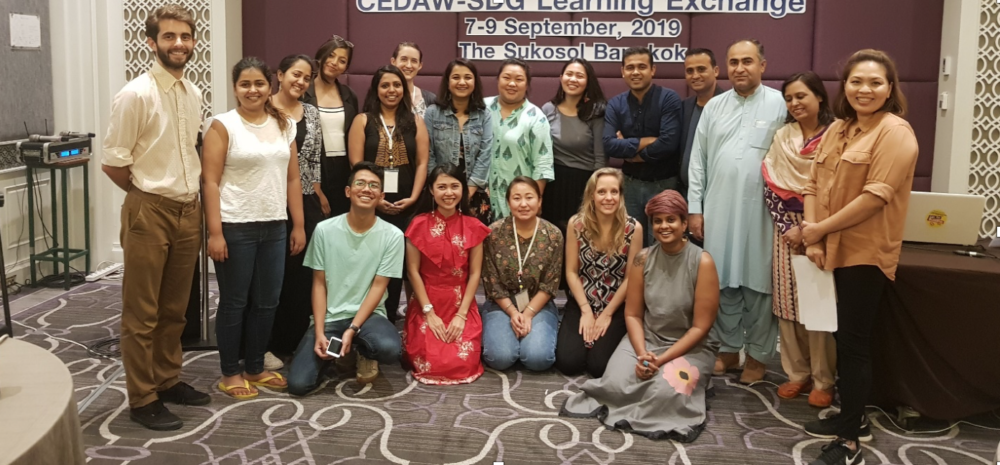Dear Friends,
We hope you are well during these trying times. It is so important to stay connected and support one another now. While the COVID-19 pandemic is unprecedented in some ways, in others it is painfully familiar, highlighting the world’s inequalities and injustices and hitting the socially, economically, and legally marginalized the hardest.
As an organization born out of the AIDS epidemic, the partners, community groups and networks of marginalized groups we work with have decades of incredible wisdom on how to protect ourselves and assert our rights — how to access affordable, inclusive healthcare and look out for gaps in the COVID-19 response. Below, we highlight the Asia Pacific Alliance for Sexual and Reproductive Health Rights, an amazing group fighting for gender equality and standing up against the kind of rights rollbacks that can emerge during crises such as this one.

Photos from our staff retreat in Myanmar in January, when we were happily all together.
*The below e-blast was written just prior to the COVID-19 outbreak in the US. Yes, that feels like a lifetime ago.
We are excited to share our Q&A with Alexa Johns, who is dedicated to protecting and fighting for the rights of women around the globe as Executive Director at the Asia Pacific Alliance for Sexual and Reproductive Health and Rights (APA). Asia Catalyst is a proud member of APA.

Q: Which areas of sexual and reproductive health do you think are still not adequately addressed in the region?
A: Freedom to express sexuality and sexual orientation, gender identity and sex characteristics; freedom from discrimination and violence; access to comprehensive sexuality education for young people and adolescents; and access to safe and legal abortion. These rights are becoming increasingly at risk and violated with the growing conservatism and authoritarianism in the region.
Q: What is an exciting project that APA is currently involved in?
A: Currently, we are working on a new project to develop rights-based indicators for the issues mentioned above – indicators civil society can use to collect data to hold their governments accountable to commitments on sexual and reproductive health. And help answer questions like, “What really works?” We will pilot and test them with APA’s members. Organizations like Asia Catalyst have an important role to play in identifying the kind of information communities really want, and gaps between policies and realities on the ground. Once it is ready, we will sharing the results publicly, for other civil society groups to use and learn from.
Also last September we held a Knowledge Exchange on CEDAW and the SDGs to help activists make sense of the many international conventions and frameworks on SRHR, and pinpoint opportunities for civil society to engage with governments and push for change using these frameworks.
Q: Is there a story you could share that drives home the threats to women’s rights today and what we can accomplish by fighting back?
A: In Indonesia the government made an attempt to pass a new draft Penal Code, which contained a number of articles violating people’s rights – restricting consensual sexual acts and limiting it within the confines of marriage, and criminalizing abortion. Thousands of university students, legal experts, and academics joined massive demonstrations across Indonesia to protest the penal code. Organizations such as APA circulated a joint statement. A few days before it was set to pass, President Joko announced the legislation would be dropped until the next Parliament.

APA members at the learning exchange they organized on how to take advantage of Committee to End the Discrimination Against Women and Sustainable Development Goals in Bangkok last September.
APA’s mission is to hold governments in the Asia Pacific to their obligations on sexual health and reproductive rights, and ensure that marginalized communities have a voice in shaping the laws that affect them. Follow them online @AsiaPacAlliance or contact Alexa at alexandra@asiapacificalliance.org.
Thanks for reading!




